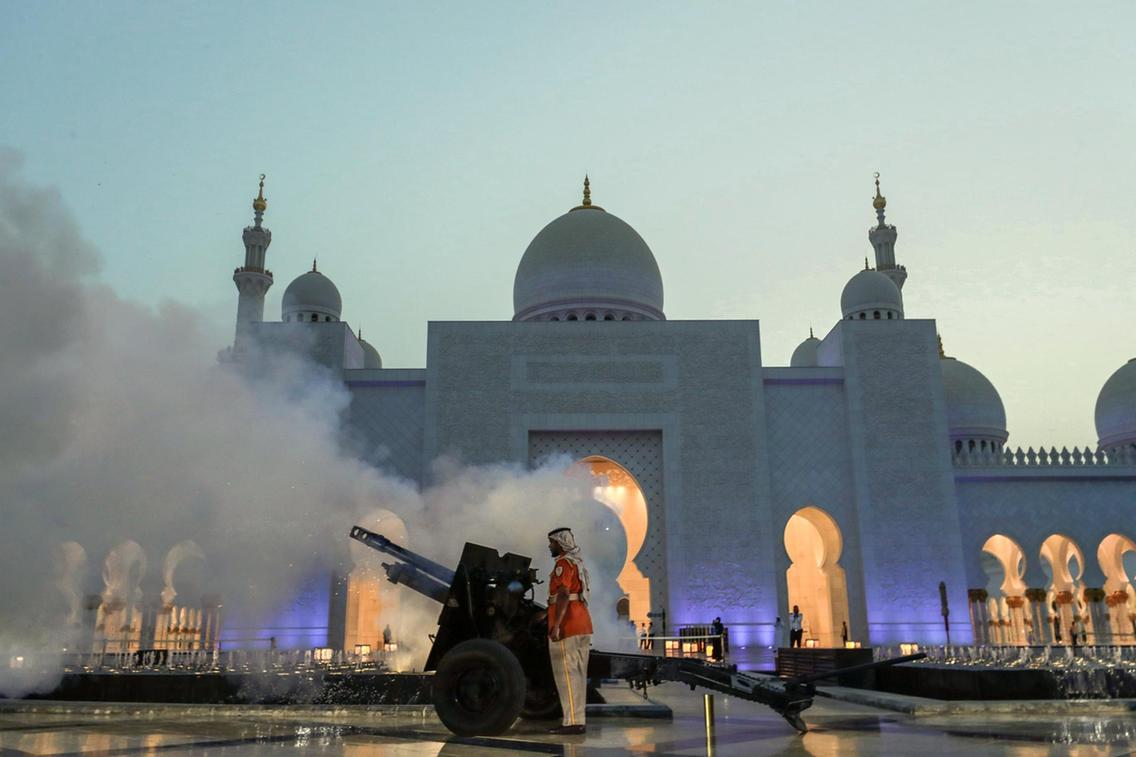Frontline medical workers and patients are exempted from fasting during Ramadan, according to an order issued by the UAE Fatwa Council.
This was among five rulings issued by the body about the holy month, which is expected to begin this weekend.
The first is that fasting is obligatory for healthy people. But anyone suffering from Covid-19 does not have to fast when they are experiencing symptoms of the virus if doctors say it will worsen their condition.
Medical staff fighting the outbreak are also exempted from fasting if they fear doing so would weaken their immune systems or compromise their ability to treat patients.
The second fatwa says tarawih, an extra extended prayer typically held in mosques after the evening prayers during Ramadan, can be performed at home under the current circumstances.
But the council said that, if possible, a family should be led in tarawih prayers by the ‘man of the house’, who should read from the Quran or recite verses from it he has memorized.
The third fatwa concerns Eid Al Fitr prayer if social distancing rules still apply during the period.
The council said that for Eid Al Fitr prayers, which are held at fajr – or sunrise – could be performed individually in homes without a sermon, should the situation not ease by then.
Families who live in the same house can pray together but the council said congregating to perform the prayer could endanger lives, which is strictly forbidden in Islam, so should be avoided.
The fourth fatwa said performing Friday prayers is not permissible. Instead, Muslims should perform dhuhr – of afternoon – prayers because Friday prayer has its own congregational requirements which, if not met, invalidates the prayer.
The body reminded people it is obligatory to follow the authorities’ instructions against gatherings to prevent the spread of Covid-19.
The fifth fatwa instructs Muslims to pay Zakat – a sustained, annual charity that is paid by Muslims calculated using a percentage of their income – earlier this year, “given the current circumstances”. Typically, Muslims pay Zakat one a year on a specific date of their choosing but the council said it would be “even better to pay it as quickly as possible” this year to help people suffering from the effects of the coronavirus.
The council cited an example when the “Prophet Mohammed allowed his uncle Al Abbas to pay his Zakat earlier than the due time to help the beneficiaries meet their needs”.
It said all types of Zakat are better spent within the country to help the beneficiaries meet their needs, state news agency Wam reported.
If there is money left over, the funds could be sent to other Muslims through the Emirates Red Crescent and other licensed charities.
Last month, the council issued a fatwa that prohibited congregational worship and called for all Muslims in the country to comply with government rules to limit the spread of the coronavirus.
It also banned Muslims who feel unwell from going to public places or attending any prayers, including those typically held on Friday, Eid and Ramadan.
The holy month is expected to begin on Friday, a member of the Arab Union for Astronomy and Space Sciences said. The exact date will be confirmed by the UAE’s moon-sighting committee – a group of astronomers, court officials and advisors from the country’s Islamic authority.
The committee meets to search for a new crescent moon, indicating the start of Ramadan.
This year, mosques will be closed for the duration of the holy month, which will be one of the biggest changes to Ramadan brought on by the coronavirus.














